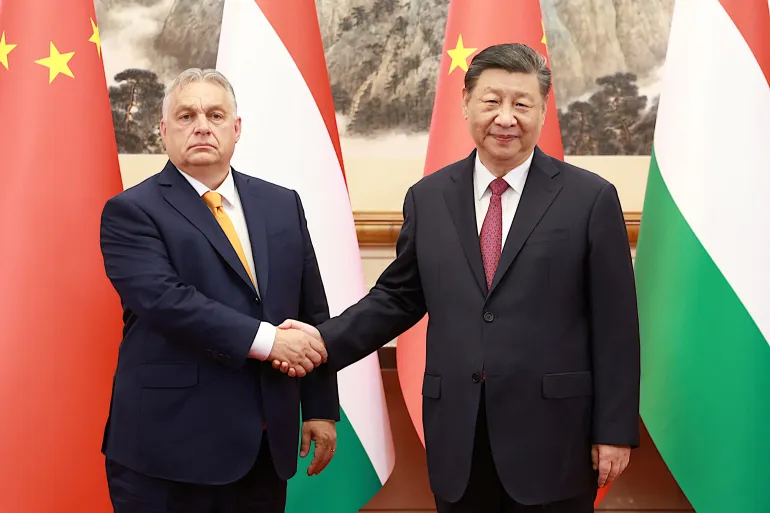Hungary’s Orban Meets China’s Xi to Discuss Ending Russia-Ukraine War
Hungarian Prime Minister Viktor Orban has embarked on a significant diplomatic mission, meeting with Chinese President Xi Jinping to discuss potential pathways to ending the ongoing Russia-Ukraine war. This high-stakes meeting underscores Hungary’s unique position in the geopolitical landscape and highlights China’s growing influence in international conflict resolution efforts.
Hungary’s Strategic Diplomacy
Viktor Orban, known for his nationalist and often contrarian stance within the European Union, is positioning Hungary as a mediator in the Russia-Ukraine conflict. Orban’s government has maintained a relatively neutral stance compared to other EU nations, often advocating for diplomatic solutions and economic cooperation over punitive measures against Russia. This approach has made Hungary a potential bridge in dialogue efforts between conflicting parties.
China’s Role in Global Mediation
China, under President Xi Jinping, has been expanding its role as a global mediator, seeking to leverage its economic and political influence to broker peace in various international conflicts. China’s relationship with both Russia and Ukraine positions it uniquely as a potential peacemaker. Xi’s meeting with Orban reflects Beijing’s interest in actively participating in the resolution of the Russia-Ukraine war, promoting stability and fostering diplomatic engagement.
Key Discussion Points
During the meeting, Orban and Xi focused on several critical issues, including:
- Ceasefire Proposals: Exploring mechanisms to establish a lasting ceasefire between Russian and Ukrainian forces, creating the groundwork for more comprehensive peace negotiations.
- Humanitarian Efforts: Discussing ways to enhance humanitarian aid to affected regions, ensuring the protection and support of civilians caught in the conflict.
- Economic Sanctions and Trade: Evaluating the impact of economic sanctions on Russia and the potential for trade adjustments that could incentivize a peaceful resolution.
- Energy Security: Addressing concerns over energy security, particularly in Europe, which has been significantly affected by the conflict, and exploring collaborative measures to stabilize energy supplies.
Hungary’s Unique Position
Hungary’s relatively neutral stance and its economic ties with both Russia and the EU place it in a unique position to act as a mediator. Orban’s approach, often criticized within the EU for its perceived leniency towards Russia, is aimed at finding pragmatic solutions that prioritize stability and economic interests. This meeting with Xi aligns with Orban’s broader strategy of diversifying Hungary’s diplomatic engagements and strengthening ties with non-Western powers.
China’s Strategic Interests
For China, the Russia-Ukraine conflict presents an opportunity to assert its role as a global peacemaker. By engaging in high-profile diplomatic efforts, Beijing aims to showcase its commitment to global stability and its capability to influence major geopolitical issues. Additionally, China’s economic interests in maintaining stable trade routes and fostering international partnerships drive its involvement in seeking a resolution to the conflict.
Broader Implications
The outcome of the Orban-Xi meeting could have significant implications for the broader geopolitical landscape. Successful mediation efforts might pave the way for increased diplomatic engagement from other nations, potentially leading to a multilateral approach to resolving the conflict. Furthermore, Hungary’s active involvement highlights the role of smaller nations in international diplomacy, demonstrating that influential mediation is not solely the purview of major powers.
Conclusion
Prime Minister Viktor Orban’s meeting with President Xi Jinping represents a pivotal moment in ongoing efforts to resolve the Russia-Ukraine war. Hungary’s strategic diplomacy, combined with China’s growing role as a global mediator, offers a glimmer of hope for a peaceful resolution. As these discussions progress, the international community will be closely watching for signs of a breakthrough, underscoring the importance of collaborative and pragmatic approaches in addressing complex global conflicts.

